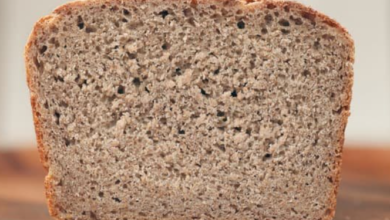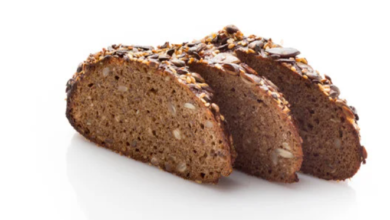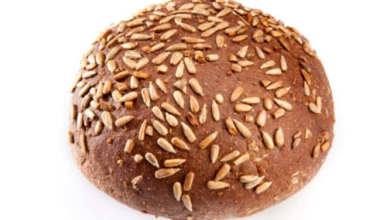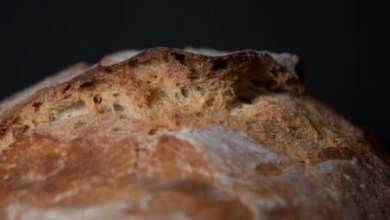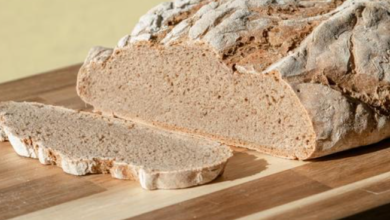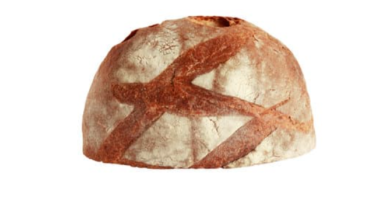The Benefits of Rye Bread: More Than You Think!
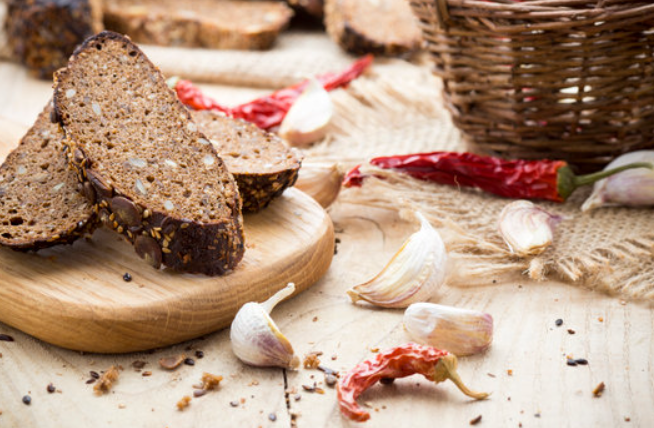
What To Know
- Unlike its counterparts made from refined wheat flour, rye bread is packed with an array of vitamins, minerals, and dietary fiber, offering a wide range of health benefits.
- Whether you enjoy it as a sandwich, toast, or accompaniment to meals, rye bread offers a delicious and nutritious way to enhance your overall well-being.
- Rye bread is made with a combination of rye flour and wheat flour, while pumpernickel bread is made with 100% rye flour.
Rye bread, a staple in European cuisine, has gained popularity worldwide for its distinctive flavor and impressive nutritional profile. Unlike its counterparts made from refined wheat flour, rye bread is packed with an array of vitamins, minerals, and dietary fiber, offering a wide range of health benefits. This article delves into the surprising advantages of incorporating rye bread into your diet.
Rich in Dietary Fiber
Rye bread is a treasure trove of dietary fiber, both soluble and insoluble. Soluble fiber forms a gel-like substance in the digestive tract, slowing down digestion and absorption of nutrients. This helps regulate blood sugar levels, reduce cholesterol, and promote a feeling of fullness. Insoluble fiber, on the other hand, adds bulk to stools, preventing constipation and maintaining a healthy digestive system.
Lower Glycemic Index
Compared to white bread, rye bread has a lower glycemic index (GI). GI measures the rate at which carbohydrates in food are broken down and absorbed into the bloodstream. Foods with a low GI release glucose gradually, preventing spikes in blood sugar levels and promoting sustained energy. This makes rye bread a suitable choice for individuals with diabetes or prediabetes.
Abundant in B Vitamins
Rye bread is an excellent source of B vitamins, including thiamin, riboflavin, niacin, and folate. These vitamins play crucial roles in energy metabolism, nerve function, and red blood cell production. Thiamin, in particular, is essential for carbohydrate metabolism, while folate is vital for cell growth and development.
Rich in Minerals
Rye bread is a rich source of essential minerals such as magnesium, iron, zinc, and manganese. Magnesium contributes to muscle function, bone health, and blood pressure regulation. Iron is vital for red blood cell production, oxygen transport, and cognitive function. Zinc supports immune function and wound healing, while manganese aids in enzyme production and antioxidant defense.
Contains Antioxidants
Rye bread contains various antioxidants, including phenolic acids and lignans. These compounds protect cells from damage caused by free radicals, which can contribute to chronic diseases such as heart disease and cancer. Antioxidants in rye bread may help reduce inflammation and improve overall health.
May Aid Weight Management
The high fiber content of rye bread promotes satiety, making you feel fuller for longer. This can help reduce calorie intake and support weight management efforts. Additionally, the low GI of rye bread helps regulate blood sugar levels, preventing sudden hunger pangs and cravings.
Other Potential Benefits
In addition to the benefits mentioned above, rye bread may also offer other health advantages:
- May reduce the risk of certain cancers: Some studies suggest that consuming rye bread may be linked to a lower risk of certain types of cancer, such as colon cancer.
- May improve cardiovascular health: The fiber and antioxidants in rye bread may help lower cholesterol levels and reduce the risk of heart disease.
- May support cognitive function: The B vitamins and antioxidants in rye bread may contribute to cognitive function and protect against age-related cognitive decline.
Recommendations: Embracing the Benefits of Rye Bread
Incorporating rye bread into your diet can provide a wealth of health benefits. Its rich fiber content, low GI, abundance of B vitamins, and presence of minerals and antioxidants make it a nutritional powerhouse. Whether you enjoy it as a sandwich, toast, or accompaniment to meals, rye bread offers a delicious and nutritious way to enhance your overall well-being.
Frequently Asked Questions
Q: Is rye bread gluten-free?
A: No, rye bread is not gluten-free. It contains gluten, a protein found in wheat and other grains.
Q: What is the difference between rye bread and pumpernickel bread?
A: Rye bread is made with a combination of rye flour and wheat flour, while pumpernickel bread is made with 100% rye flour. Pumpernickel bread has a darker color and a denser texture than rye bread.
Q: Can rye bread cause bloating or gas?
A: Some people may experience bloating or gas after consuming rye bread due to its high fiber content. It’s recommended to start with small amounts and gradually increase your intake to allow your digestive system to adjust.
Q: Is rye bread a good source of protein?
A: Rye bread is not a significant source of protein compared to other food sources such as meat, fish, or legumes.
Q: Is rye bread suitable for people with diabetes?
A: Yes, rye bread can be a suitable choice for people with diabetes due to its low glycemic index, which helps regulate blood sugar levels.
